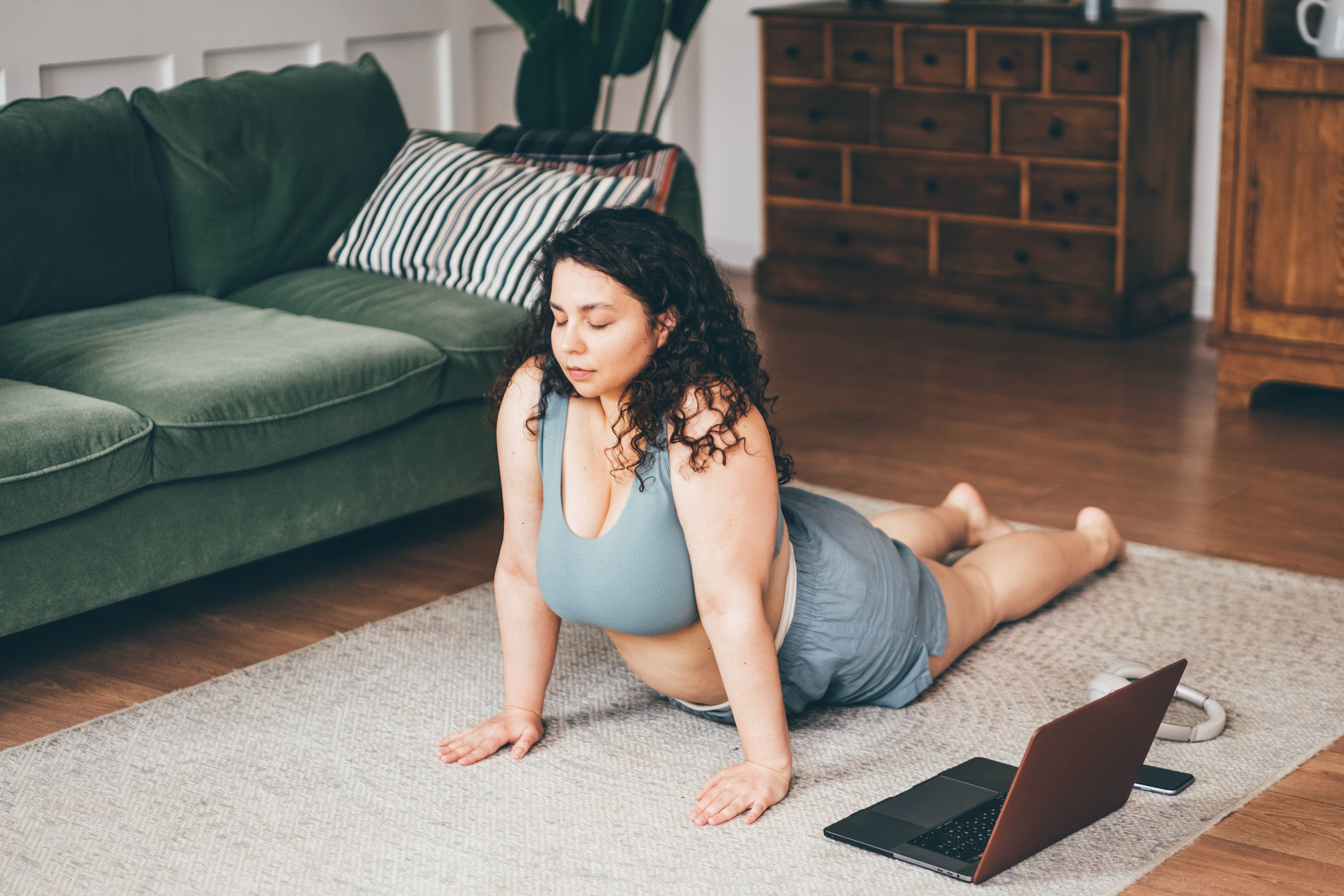Health at Every Size (HAES) is a powerful approach to being more kind toward your mind and body even with pervasive messaging in media and culture.
No matter what size you are, the unhealthy images and intrinsic ideal of health have undoubtedly impacted you.
However, HAES can help you to have a realistic approach when it comes to movement, food intake and how you approach self-talk with regards to who you are.
Your mental health may improve when you are willing to engage in gentle movement for your body and mind.
Gentle movement may include but is not limited to; walking, yoga, qi gong, Tai Chi, stretching, gardening, cleaning the house, and dance.
These activities can help to reduce stress and improve your self-esteem. Gentle movement can also mean slow movement.
Not every physical activity has to be working every muscle to improve health or have health benefits.
When you are willing to move your body with these activities or with gentle exercise, you may see increased flexibility and changes in how you feel.
Movement doesn’t have to be painful in order to be beneficial. In fact, pain can be a sign to stop the movement altogether.
Your body will indicate what works and what doesn’t when it comes to movement. If you suffer from chronic pain or a chronic condition, gentle movement can be especially helpful.
Some benefits of gentle movement may include:
Increased self-esteem.
When you listen to your body, you are able to build trust in your ability to take care of your needs. Trust in yourself can increase your self-esteem.
Keeping promises to yourself, listening to your smallest voice, and knowing when to stop can all be ways to increase your self-discipline, which can impact your mental health as well as self-esteem.
Connecting with your body can be a sign of self-love, and one of the best ways to show yourself love is through gentle movement.
Increased frequency.
With gentle movement, there is no obligation to go anywhere or sign up for a membership. You can take routine movements and transform your life with them.
Smaller increments of movement can help you to increase your frequency.
If you have stairs in your home, walking up and down them can be gentle movement for your body.
You don’t have to trick yourself into believing that movement has to be grandiose to be useful or to gain benefits from it.
Something as simple as practicing balance or restorative yoga can help you to feel better about yourself.
It can be better to do small, gentle movements several times a day than one huge workout session where you expect to ignore all your needs.
Gentle movement is not extreme, so if workout sessions work for you, that is another opportunity to develop loving self-talk.
Compassion toward yourself.
If you miss a workout or a chance to move, one of the most powerful ways to move forward is to show compassion toward yourself.
Relaxation can help with stress relief and has benefits too. You don’t have to berate yourself or engage in negative self-talk to improve your muscle strength.
You can use one of the phrases below to get yourself back on track:
I know that you wanted to move today, and it’s okay to be disappointed.
It may seem like you are a bad person right now, and I hope that you can see that you are doing your best.
I remain hopeful that tomorrow is a new day when it comes to movement. Today’s mistake doesn’t have to be the same mistake you make tomorrow too.
It’s okay to acknowledge that you didn’t meet an expectation. It’s not okay to talk to yourself that way.
Gentle self-talk can be a benefit of gentle movement because you have the opportunity to shift your expectations with both your mental health and physical health.
Gentle movement can create a new expectation within you when it comes to your health. Striving for unhealthy ideals can be harmful to your mental health, and though it can seem lonely, you aren’t alone.
A therapist can help you to navigate body image and how you feel toward yourself.
At Denver Metro Counseling, we have therapists in Denver who are trained and experienced in body image counseling. Reach out to schedule a consult with one of our body image counselors today.
***
Written by: Randi Thackeray, MA
Clinically Reviewed and Edited by: Julie Reichenberger, MA, LPC, ACS, ACC
